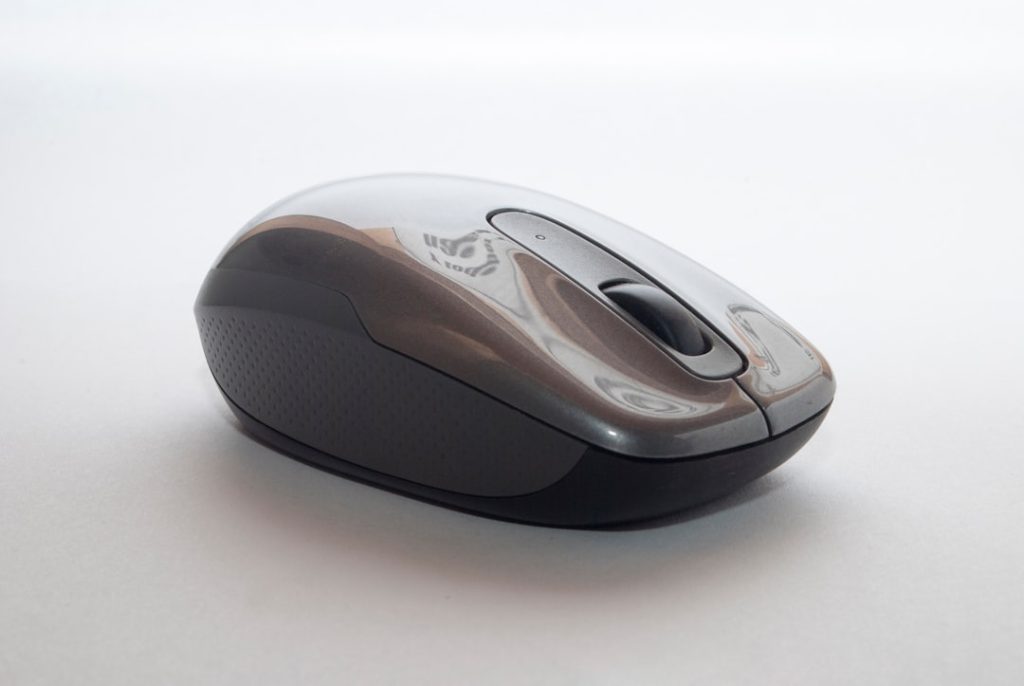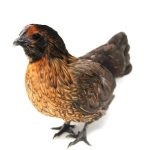Mice pose significant risks to chickens and their coops due to several factors. These rodents are carriers of diseases and parasites that can harm both chickens and humans, including salmonella, leptospirosis, and Hantavirus. Mice can also introduce external parasites like mites and lice into the coop, causing discomfort and health issues for the chickens.
Mice are known for consuming and contaminating large quantities of feed and grain, resulting in financial losses and unsanitary conditions in the coop. Their presence can lead to food spoilage and bacterial spread, compromising chicken health. Additionally, mice tend to chew through insulation, wiring, and other coop materials, creating potential fire hazards and structural damage.
In some instances, mice have been observed attacking and injuring young or weak chickens, directly threatening the flock’s well-being. The presence of mice in a chicken coop can lead to various health, safety, and financial concerns for chicken owners, making effective rodent control essential for maintaining a healthy and productive flock.
Table of Contents
- 1 Creating a clean and organized coop: The first line of defense against mice
- 2 Securing feed and grain storage: Preventing mice from accessing food sources
- 3 Using natural deterrents: Non-toxic methods for keeping mice away
- 4 Implementing traps and baits: Controlling mice populations effectively
- 5 Regular maintenance and inspection: Keeping a vigilant eye on potential entry points
- 6 Seeking professional help: When to call in pest control experts
- 7 FAQs
- 7.1 What are some natural ways to keep mice away from chickens?
- 7.2 What are some commercial products that can help keep mice away from chickens?
- 7.3 Why is it important to keep mice away from chickens?
- 7.4 What are some signs that mice may be present in the chicken coop?
- 7.5 Are there any health risks associated with having mice in the chicken coop?
Key Takeaways
- Mice pose a threat to chickens by consuming their feed, spreading diseases, and potentially harming the birds.
- A clean and organized coop is the first line of defense against mice infestations, as it eliminates potential hiding spots and reduces access to food sources.
- Securing feed and grain storage is crucial in preventing mice from accessing food sources, as it limits their ability to sustain and reproduce.
- Natural deterrents such as peppermint oil, predator urine, and essential oils can be effective in keeping mice away from the coop without using toxic chemicals.
- Implementing traps and baits can help control mice populations effectively, with options such as snap traps, live traps, and bait stations available.
- Regular maintenance and inspection of the coop is essential in identifying and sealing potential entry points for mice.
- Seeking professional help from pest control experts is necessary when mice infestations are severe or persistent despite DIY efforts.
Creating a clean and organized coop: The first line of defense against mice
Here is the rewritten text with 3-4 Maintaining a Clean and Organized Environment
Regular cleaning and removal of debris is crucial in preventing mice from infesting a chicken coop. This eliminates potential hiding spots for mice and reduces the availability of food sources. It’s essential to keep the coop free of spilled feed, nesting materials, and clutter that can attract and harbor mice.
Creating an Unappealing Environment for Mice
Keeping the coop well-ventilated and dry makes it less appealing to mice, as these pests are attracted to warm, damp environments. Furthermore, sealing any gaps or cracks in the coop’s structure will help prevent mice from gaining entry. Inspecting the coop for potential entry points and using materials such as wire mesh, steel wool, or caulk to seal them off will make it more difficult for mice to infiltrate the space.
Securing Entry Points
It’s also important to keep doors and windows securely closed, as these are common entry points for mice. By creating a clean, organized, and well-sealed coop, chicken owners can significantly reduce the risk of a mouse infestation.
Effective Prevention Measures
By following these simple yet effective measures, chicken owners can prevent mice from infesting their coop and ensure a healthy and safe environment for their chickens.
Securing feed and grain storage: Preventing mice from accessing food sources

Securing feed and grain storage is crucial in preventing mice from accessing food sources in a chicken coop. Storing feed in metal containers with tight-fitting lids will help deter mice from accessing and contaminating the food supply. It’s important to keep feed storage areas clean and free of spilled grains, as even small amounts of spilled feed can attract mice.
Additionally, regularly inspecting feed storage areas for signs of rodent activity, such as droppings or gnaw marks, will help identify and address potential issues before they escalate. Furthermore, implementing a “first in, first out” approach to feed storage can help prevent feed from becoming stale or spoiled, which can attract mice. By rotating the feed supply and using it before it has a chance to spoil, chicken owners can reduce the risk of attracting pests.
It’s also important to keep the surrounding area of the feed storage clean and free of debris that could provide hiding spots for mice. By securing feed and grain storage and implementing proper storage practices, chicken owners can minimize the risk of attracting and sustaining a mouse population in their coop.
Using natural deterrents: Non-toxic methods for keeping mice away
In addition to maintaining a clean and organized coop and securing feed storage, chicken owners can use natural deterrents to keep mice away from their coop. One effective method is to plant mint around the perimeter of the coop, as mice are known to dislike the scent of mint. Additionally, placing cotton balls soaked in peppermint oil in areas where mice are likely to enter can help deter them from approaching the coop.
Similarly, using strong-smelling herbs such as lavender or rosemary around the coop can help repel mice. Another natural deterrent is the use of predator urine, such as that of a cat or owl. Sprinkling predator urine around the perimeter of the coop can create the illusion of a threat to mice, deterring them from approaching the area.
Additionally, using natural predators such as barn owls or cats to control the mouse population around the coop can be an effective long-term solution. By incorporating natural deterrents into their pest control strategy, chicken owners can keep mice at bay without resorting to toxic chemicals or harmful methods.
Implementing traps and baits: Controlling mice populations effectively
When natural deterrents are not enough to control a mouse population in a chicken coop, implementing traps and baits can be an effective method for reducing their numbers. There are various types of traps available, including snap traps, live traps, and electronic traps, each with its own advantages and limitations. Snap traps are a traditional and effective method for capturing mice quickly, while live traps allow for the capture and release of mice without harming them.
Electronic traps offer a hands-free approach to trapping mice and can be an efficient option for controlling larger populations. In addition to traps, using baits can help control mouse populations in a chicken coop. There are various types of baits available, including poison baits and non-toxic baits.
Poison baits should be used with caution, as they can pose risks to non-target animals and children if not handled properly. Non-toxic baits such as peanut butter or dried fruit can be used in conjunction with traps to lure mice into capture devices without posing a risk to other animals or humans. By implementing traps and baits strategically, chicken owners can effectively control mouse populations in their coop while minimizing risks to other animals and the environment.
Regular maintenance and inspection: Keeping a vigilant eye on potential entry points

Inspecting the Coop’s Exterior
Inspecting the exterior of the coop for gaps, cracks, or holes that could serve as entry points for mice is essential. Checking doors, windows, vents, and other openings for signs of wear or damage will help identify areas that may need repair or reinforcement.
Addressing Potential Entry Points
It’s essential to address any potential entry points promptly to prevent mice from gaining access to the coop. Furthermore, regularly cleaning and organizing the coop will help identify potential hiding spots for mice and reduce the availability of food sources. Removing debris, spilled feed, nesting materials, and clutter will make the coop less appealing to mice and help prevent infestations.
Maintaining a Clean and Organized Coop
Additionally, regularly inspecting feed storage areas for signs of rodent activity will help identify potential issues before they escalate. By maintaining a clean, organized, and well-sealed coop through regular maintenance and inspection, chicken owners can minimize the risk of a mouse infestation.
Seeking professional help: When to call in pest control experts
In some cases, despite best efforts to prevent and control mouse infestations in a chicken coop, it may be necessary to seek professional help from pest control experts. If a mouse infestation is severe or persistent despite implementing various control methods, it may be time to call in professionals who have experience in dealing with rodent infestations. Pest control experts can conduct a thorough inspection of the coop to identify entry points and nesting areas for mice.
They can also provide guidance on effective control methods tailored to the specific needs of the coop. Additionally, pest control experts can offer advice on long-term prevention strategies to minimize the risk of future infestations. This may include recommendations for structural repairs or modifications to make the coop less accessible to mice.
Furthermore, pest control experts can provide guidance on safe and effective methods for controlling mouse populations without posing risks to chickens or other animals in the area. By seeking professional help when necessary, chicken owners can effectively address mouse infestations in their coop and implement long-term prevention strategies to protect their flock. In conclusion, mice pose a significant threat to chickens and their coop due to their potential to transmit diseases, contaminate food sources, cause structural damage, and pose direct threats to the well-being of chickens.
To prevent mouse infestations in a chicken coop, it’s important to maintain a clean and organized environment, secure feed and grain storage, use natural deterrents, implement traps and baits strategically, conduct regular maintenance and inspection, and seek professional help when necessary. By taking proactive measures to prevent mouse infestations and effectively control their populations when necessary, chicken owners can create a safe and healthy environment for their flock while minimizing risks to their own health and safety.
If you’re looking for tips on how to keep mice away from your chickens, you might also be interested in learning about the importance of keeping your chicken coop clean and well-maintained. Check out this article on chicken coop maintenance for some helpful advice on creating a healthy and safe environment for your flock.
FAQs
What are some natural ways to keep mice away from chickens?
Some natural ways to keep mice away from chickens include keeping the chicken coop clean and free of food scraps, sealing any entry points into the coop, using natural repellents such as peppermint oil or cloves, and keeping the surrounding area free of clutter and debris.
What are some commercial products that can help keep mice away from chickens?
There are several commercial products available that can help keep mice away from chickens, including ultrasonic repellent devices, rodent-proof feeders and waterers, and rodent traps. It’s important to follow the manufacturer’s instructions when using these products.
Why is it important to keep mice away from chickens?
Mice can pose a threat to chickens by stealing their food, spreading diseases, and potentially harming the chickens themselves. Keeping mice away from chickens helps to ensure the health and well-being of the flock.
What are some signs that mice may be present in the chicken coop?
Some signs that mice may be present in the chicken coop include droppings, chewed or damaged feed bags, nests made of shredded materials, and the presence of mice themselves. It’s important to regularly inspect the coop for these signs and take action if mice are found.
Are there any health risks associated with having mice in the chicken coop?
Yes, having mice in the chicken coop can pose health risks to both the chickens and the humans caring for them. Mice can carry diseases such as salmonella and hantavirus, which can be transmitted to chickens and humans through contact with contaminated surfaces or materials.
Meet Walter, the feathered-friend fanatic of Florida! Nestled in the sunshine state, Walter struts through life with his feathered companions, clucking his way to happiness. With a coop that’s fancier than a five-star hotel, he’s the Don Juan of the chicken world. When he’s not teaching his hens to do the cha-cha, you’ll find him in a heated debate with his prized rooster, Sir Clucks-a-Lot. Walter’s poultry passion is no yolk; he’s the sunny-side-up guy you never knew you needed in your flock of friends!







